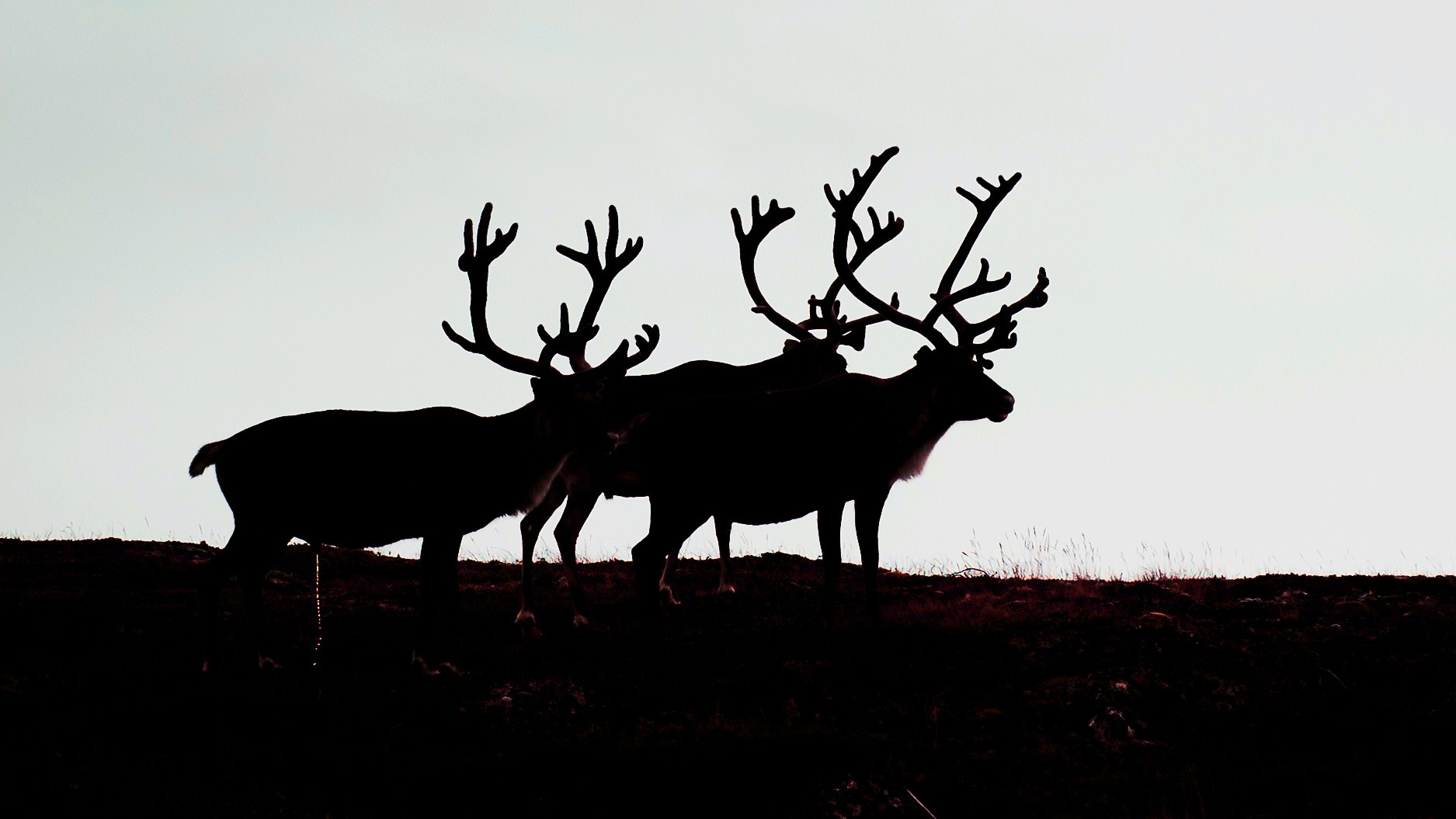Reindeer 'shrinking' as Arctic climate change continues
Warmer weather hits food supply while adding to herd numbers, causing adults to lose 12 per cent of weight

A free daily email with the biggest news stories of the day – and the best features from TheWeek.com
You are now subscribed
Your newsletter sign-up was successful
Arctic reindeer are "shrinking" as climate change continues to affect ecosystems near the North Pole, say scientists.
The average weight of an adult reindeer on the Svalbard group of islands, to the north of Norway, fell from 121lbs to a little more than 106lbs between 1994 and 2010, a drop of 12 per cent.
Rising temperatures have led to an abundance of food in the summer, making females more likely to conceive in the autumn and add to herd numbers, said Professor Steve Albon of the James Hutton Institute in Scotland, which carried out the study with a team of Norwegian researchers.
The Week
Escape your echo chamber. Get the facts behind the news, plus analysis from multiple perspectives.

Sign up for The Week's Free Newsletters
From our morning news briefing to a weekly Good News Newsletter, get the best of The Week delivered directly to your inbox.
From our morning news briefing to a weekly Good News Newsletter, get the best of The Week delivered directly to your inbox.
However, they have also caused the usual winter snowfall to be replaced by rain, which then freezes over, making edible pastures inaccessible for wildlife.
Winters are getting "increasingly tough", Albon said, and reindeer will often starve or give birth to under-developed young due to problems with the frozen food supply.
Forecasts for the future are not optimistic. "Scientists are predicting there will be more smaller reindeer in the Arctic in the coming decades, even possible extinction," says the International Business Times.
Temperatures in the Arctic are increasing at a faster rate than anywhere else on the planet due to a build-up of greenhouse gases in the atmosphere.
A free daily email with the biggest news stories of the day – and the best features from TheWeek.com
The IBT adds that the scientists' study follows a report by the Arctic Council last month that the region is facing large-scale "regime changes" as a result of global warming, with particular focus on Greenland and a possible collapse of fisheries due to depleted oxygen levels in the ocean.
-
 The ‘ravenous’ demand for Cornish minerals
The ‘ravenous’ demand for Cornish mineralsUnder the Radar Growing need for critical minerals to power tech has intensified ‘appetite’ for lithium, which could be a ‘huge boon’ for local economy
-
 Why are election experts taking Trump’s midterm threats seriously?
Why are election experts taking Trump’s midterm threats seriously?IN THE SPOTLIGHT As the president muses about polling place deployments and a centralized electoral system aimed at one-party control, lawmakers are taking this administration at its word
-
 ‘Restaurateurs have become millionaires’
‘Restaurateurs have become millionaires’Instant Opinion Opinion, comment and editorials of the day
-
 Epstein files topple law CEO, roil UK government
Epstein files topple law CEO, roil UK governmentSpeed Read Peter Mandelson, Britain’s former ambassador to the US, is caught up in the scandal
-
 Iran and US prepare to meet after skirmishes
Iran and US prepare to meet after skirmishesSpeed Read The incident comes amid heightened tensions in the Middle East
-
 Israel retrieves final hostage’s body from Gaza
Israel retrieves final hostage’s body from GazaSpeed Read The 24-year-old police officer was killed during the initial Hamas attack
-
 China’s Xi targets top general in growing purge
China’s Xi targets top general in growing purgeSpeed Read Zhang Youxia is being investigated over ‘grave violations’ of the law
-
 Panama and Canada are negotiating over a crucial copper mine
Panama and Canada are negotiating over a crucial copper mineIn the Spotlight Panama is set to make a final decision on the mine this summer
-
 Why Greenland’s natural resources are nearly impossible to mine
Why Greenland’s natural resources are nearly impossible to mineThe Explainer The country’s natural landscape makes the task extremely difficult
-
 Iran cuts internet as protests escalate
Iran cuts internet as protests escalateSpeed Reada Government buildings across the country have been set on fire
-
 US nabs ‘shadow’ tanker claimed by Russia
US nabs ‘shadow’ tanker claimed by RussiaSpeed Read The ship was one of two vessels seized by the US military